Celebrating My Patrilineal Jewish Identity with Hanukkah
My mother and I have almost the same temperament. That may be because we share the same ancestral lineage of loud, emotional Italians. We also share anxiety, migraines, and even the same body type. But the one thing we don’t share is our religion. It’s my father who gave me the Jewish identity that I cherish, my father who passes on bits and pieces of Yiddish from his childhood, my father who makes matzah ball soup for Passover.
It was only after my bat mitzvah that I finally understood the significance of being Jewish through my dad. It means that I am a patrilineal Jew, born of my father in a religion that traditionally centers matrilineality.
During my freshman year of high school, Hanukkah fell during tech week. I needed to be in the theater as late as 9:30 every night, and by the time I got home, all I wanted was sleep. So three of us in the company decided to start lighting candles during tech. The other Jews in our cast and crew joined us to light the menorah and say blessings while everyone else watched, sometimes as if it were a show, as if they were witnessing something strange and unknown as seven or so Jews sang “Baruch atah Adonai…” I remember them cheering, chattering, and filming us on their phones. I felt almost like an actor as I looked out into our enthusiastic audience, like I was performing my Jewishness for them, standing up there with my Magen David around my neck and a Hebrew blessing rolling from my tongue.
As we struggled to keep the flames alive outdoors, a few of our observers began mentioning off-hand that their mothers are Jewish. I’d never heard them mention a connection to Judaism before, and it soon became apparent that those talking about their mothers did not identify as Jewish and were non-practicing. Still, the other Jews around me immediately welcomed them with open arms. “If your mother’s Jewish,” they said, “then so are you.”
A small stabbing sensation went through me every time this happened, like someone was chipping away at the fragile confidence in my own legitimacy that I had been trying to build. It hurt, because while I might have to work twice as hard to be fully accepted in spaces not as inclusive as the Boston Worker’s Circle (the secular, social justice-based community my family and I belong to), these kids didn’t have to work at all. They won’t know how it feels to be told from Jews and non-Jews alike that you’re “not Jewish enough.”
Over the years, I’ve periodically fallen down rabbit holes of Who is a Jew? and other such articles that often denied me my own, closely held identity. Instead of providing clarity on a tangled web of differing opinions, these only served to make me feel like an imposter in Jewish spaces. I wondered, and still do, why it is that I can’t be accepted as a “real Jew” everywhere I go.
At those Hanukkah celebrations at school, I saw in action for the first time what I knew in theory to be true: that many people would automatically accept a non-practicing, non-identifying matrilineal Jew over a practicing, identifying patrilineal Jew. I realized that the rejection and exclusion I’d been reading about in all those articles over the years was right in front of my face.
Later, we played dreidel, and predictably, insults to patrilineal descent were sprinkled in with jokes about not really being Jewish if you couldn’t spin a dreidel upside down. I tried to defend my identity in the face of these comments—mostly implicit, as they often are, subtle enough that those without a sensitive ear for it wouldn’t notice—but my responses felt weak, partly because the arguments I usually had at the ready were muddled by my hurt. A few joined in my attempts to defend the validity of patrilineal descent, unaware that I was not just defending a group of people, but myself as well, but a quick counter from one or two people can’t instantly change such a common and frequently subconscious belief.
I’m still struggling with imposter syndrome in Jewish spaces. My way of dealing with it has been to hide my identity—to avoid revealing that my mom was raised Protestant. But my mom has always been as big a part of my life as my dad. She’s always supported me in whatever I want to do with my religion, and it feels wrong for me to keep her identity quiet in order to discourage attacks against my own. That’s not something I want to do anymore, and I wish that I’d never felt compelled to do so.
The Jewish people, as a whole, are estimated to make up about 0.2% of the world’s population. We are a religious minority, yet we deny and exclude from our community those we deem to be “not enough”—and not just on the world stage, but within a high school theater company in Massachusetts. This exclusion isn’t fair to the children of interfaith marriages, who are given identities and later in life find them called into question. It isn’t fair that some Jews feel it is necessary to convert halachically into their own religion. It isn’t fair that many will deny the validity of my Jewishness, but I’m still subject to the same antisemitism as someone with two Jewish parents. It’s draining to have to defend myself over and over again, to mentally prepare myself for that defense when I walk into a space I’m unfamiliar with.
But for all the people with negative things to say about my legitimacy as a Jew, more have been supportive. I have hope that a path to widespread acknowledgment of every form of Jewish descent will emerge, whatever that may look like, and that the next generation of patrilineal Jews will enter a world ten times more accepting and understanding of their identity.
This piece was written as part of JWA’s Rising Voices Fellowship.

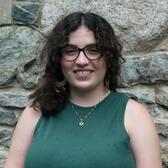
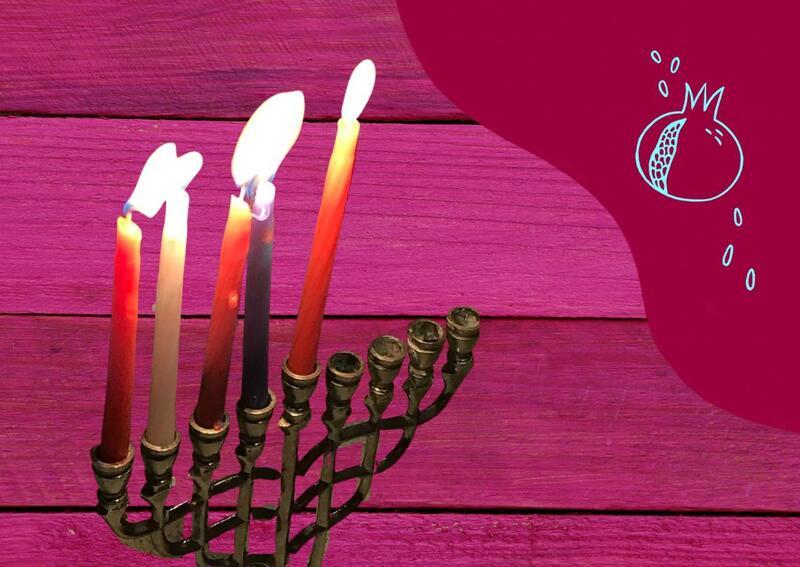
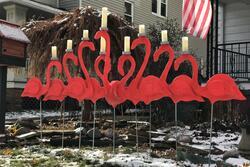
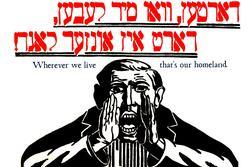
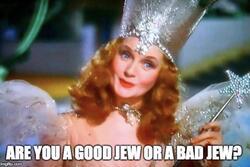


I wear my Star of David to remind me of my Busha escaping Russia after her Father was taken,never to be seen again.
They were Roma Jews, targeted for extermination.
She emigrated in 1914 and hid who she was until her death.She also spoke Yiddish with my Father and cooked Jewish food.
I refuse to hide who I am, Patrolineal Jew or not.
Three Synagogues never returned my inquiry about adult conversion classes.
My Jewish friends say I can be in the club. That's good enough for me.
This piece made me think about and understand what people of interfaith marriage must endure. It is well written and easy to understand! Again , Ava has written an excellent piece!!!
Thanks for writing and publishing this article. I'm sorry to hear this is still going on. I've experienced this all my life as well.